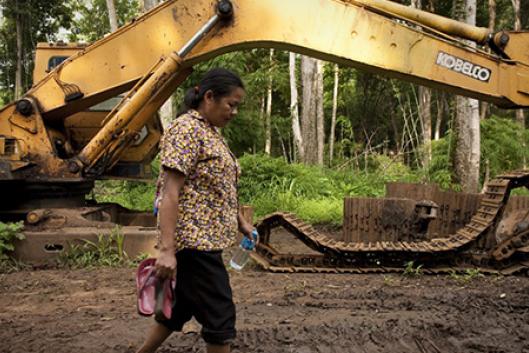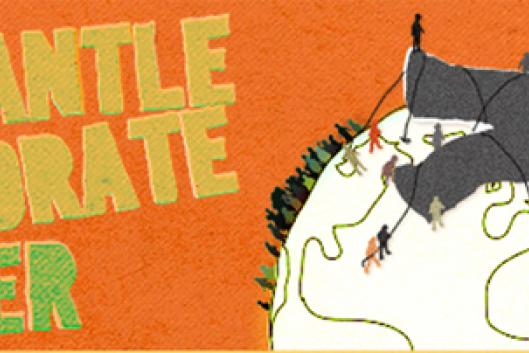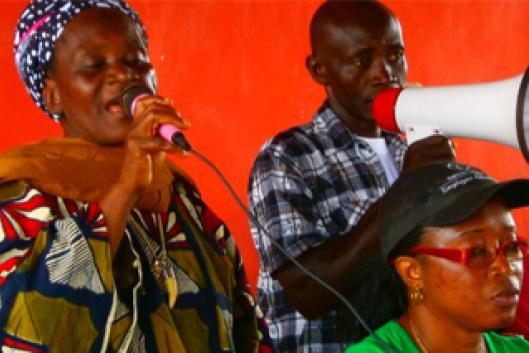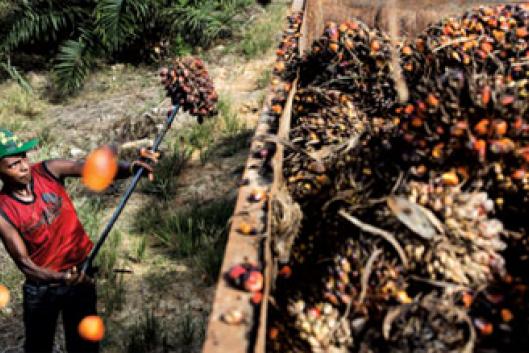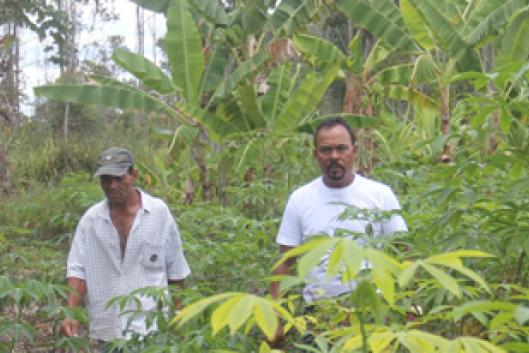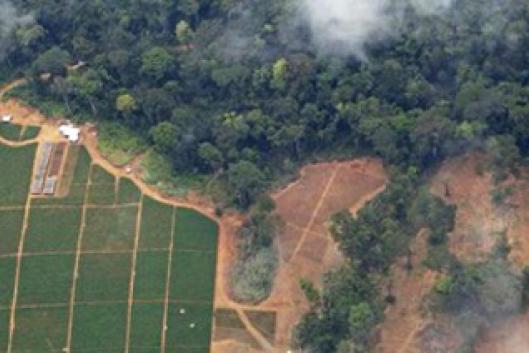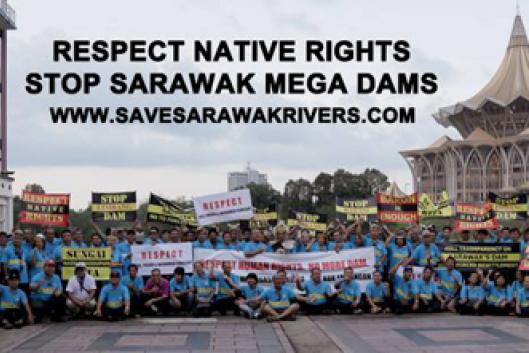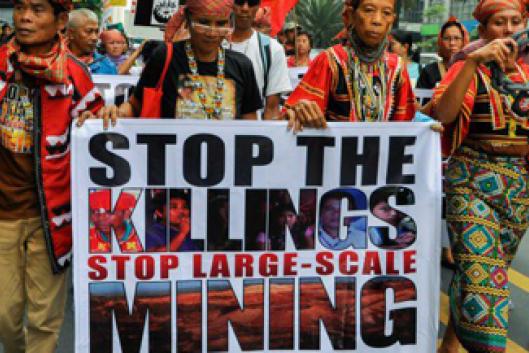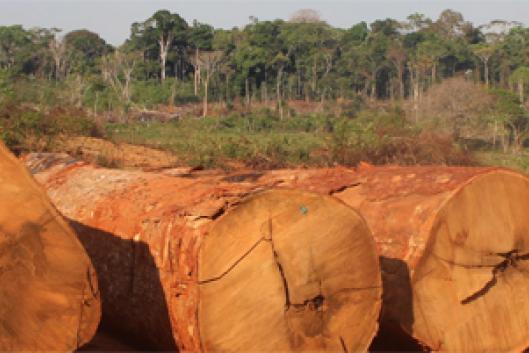Bulletin Issue 197 – December 2013
Human rights violations, land grabbing, deforestation: The modus operandi of corporations
Download the full bulletin in pdf format
Also available in Portuguese and French
WRM Bulletin
197
December 2013
OUR VIEWPOINT
HUMAN RIGHTS VIOLATIONS, LAND GRABBING, DEFORESTATION: THE MODUS OPERANDI OF CORPORATIONS
-
23 December 2013Human rights violations and crimes perpetrated by Transnational Corporations (TNCs) are no isolated facts. Rather, as documentation of such violations in Latin America and many denunciations in other continents show, they are of systemic character. Even so, corporate violations enjoy a widespread level of impunity.
-
23 December 2013On December 9, 2013, a meeting was called in Pujehun District over the lease of 6,500 hectares of prime farmland in this southeastern part of Sierra Leone. Local sources said elders called the meeting to allow people to again express their grievances to the Paramount Chief over the lease of land to the Socfin Agricultural Company. Hundreds were waiting in the village of Libby Malen for the chiefdom authorities to arrive when they learned that nine of their fellow villagers had been beaten and arrested by the police en route to the meeting. More than three hundred people immediately left the meeting to go to the police station in nearby Sahn and demand the release of the villagers.
-
23 December 2013Photo: E. Benjamin Skinner Malaysia Malaysiahas become a destination for migrant workers from other Southeast Asian countries– mainly Indonesia, Thailand, andBangladesh – who usually occupy low-wage unskilled jobs in different sectors including the labor-intensivepalm oil industry.
-
23 December 2013Photo: credito: Greenpeace/Alex Yallop On 25 November 2013, the President of Cameroon issued three decrees granting 19,843 ha of native land to SGSustainable Oils Cameroon/Herakles Farms in southwest Cameroonfor the establishment of a large-scale oil palm plantation. Local people and organizations denounce that the Presidential decrees, full of irregularities, arereminiscent of colonialism and slavery and violate provisions of the Cameroonian 1976 land tenure act as well as international laws on climate change that demand not to increase emissions through theconversion of tropical forests into monoculture systems, such as industrial oil palm plantations, which is the case.
-
23 December 2013300 indigenous people protested against Sarwak's dams at the congress of the International Hydropower Association (IHA) this May in Kuching - Photo: Bruno Manser Fonds A history of resource exploitation, corruption and human rights abuses
-
23 December 2013Photo: http://www.minesandcommunities.org/ The criminalization of social protest upheld by local communities is a worldwide phenomenon. In Latin America, the Latin American Observatory of Mining Conflicts (OCMAL), a network comprising social organizations, has issued the following declaration denouncing the violent repression of opposition against the mining companies in the region:
-
23 December 2013In the business world, “sustainability” promises, among other things, that economic activity does not violate the rights of the communities affected, and that future generations will be able to continue to benefit from the natural setting where the activity is practiced. NGOs, companies and governments who promote “sustainable forest management” (SFM) claim that this is possible to achieve in tropical forests, using certification from the Forest Stewardship Council (FSC) as a guarantee.
PEOPLES IN ACTION
-
23 December 2013Eight activists of Robin Wood, a grassroots group in Germany, were sued in October 2013 for taking part in a peaceful demonstration to protect Indonesian rain-forests. In September, the activists hung a banner at Wilmar‘s palm oil refinery plant in Germany saying "Wilmar's refined destruction - No palm oil from deforestation". They were convicted for "assault".
-
23 December 2013The Trans-Pacific Partnership (TPP) is a highly secretive and expansive free trade agreement between the United States and twelve Pacific Rim countries, including Canada, Mexico, New Zealand and Australia. Leaked text reveals that the TPP would empower corporations to directly sue governments in private and non-transparent trade tribunals over laws and policies that corporations allege reduce their profits. Legislation designed to address climate change, curb fossil fuel expansion and reduce air pollution could all be subject to attack by corporations as a result of TPP.
-
23 December 2013On 16 May, 2013, the Indonesian Constitutional Court issued a decision confirming that Customary Forests are forests located in Indigenous territories, and should no longer be considered as State Forests. Indigenous Peoples throughout Indonesia welcomed the Constitutional Court's decision and started rehabilitating their territories which have been damaged by the activities of companies who were given licenses to operate by the State. It has been few months since the Constitutional Court's decision. However, up until now there has been no attempt by the government to implement this decision.
-
23 December 2013Sombath Somphone, perhaps the Lao PDR's most prominent community development activist and founder of the Participatory Development Training Center (PADETC) was last seen on the evening of Dec 15, 2012 on a road in Vientiane. According to footage from a CCTV camera, he was stopped in his own vehicle by police, left it, and minutes later got into another vehicle and was driven off into the darkness.
